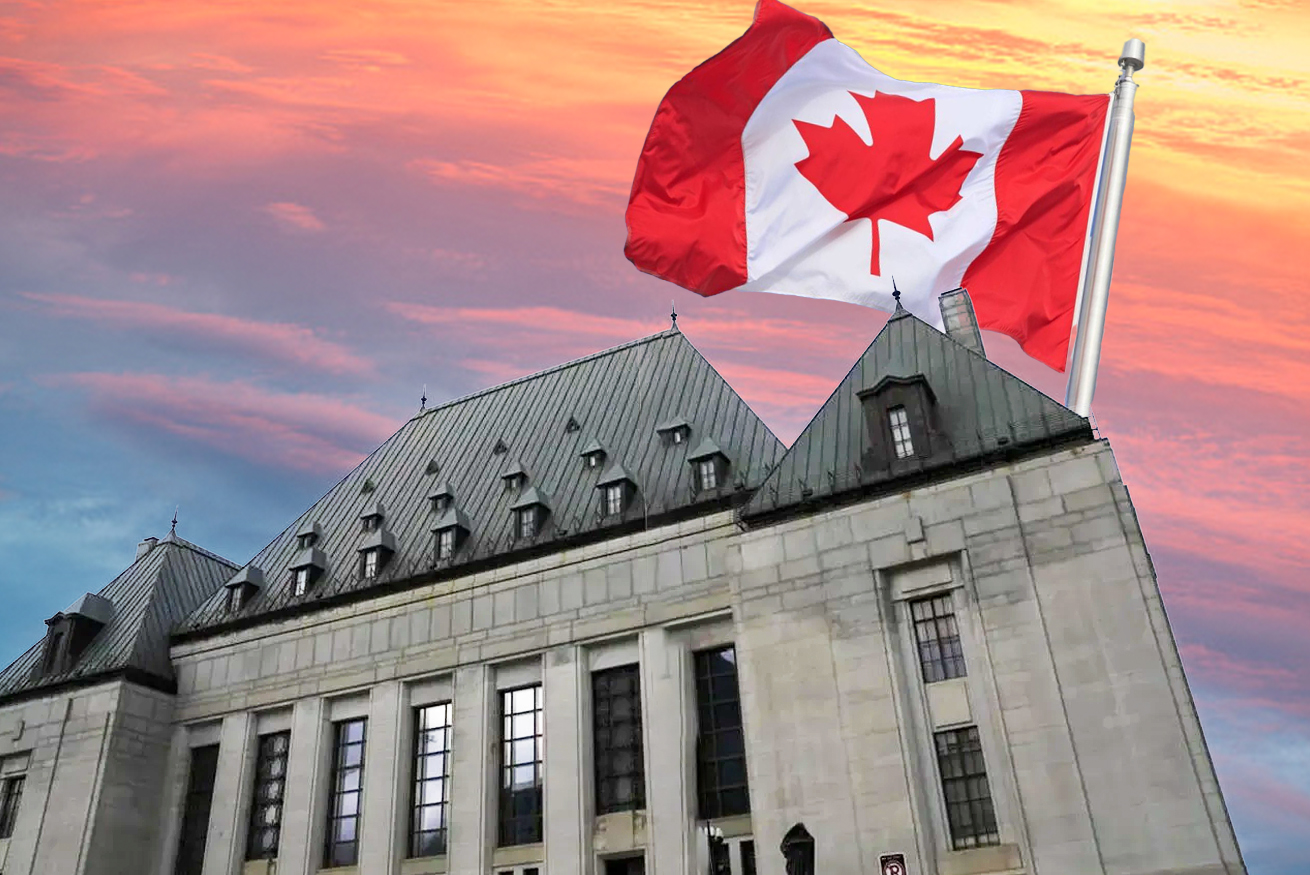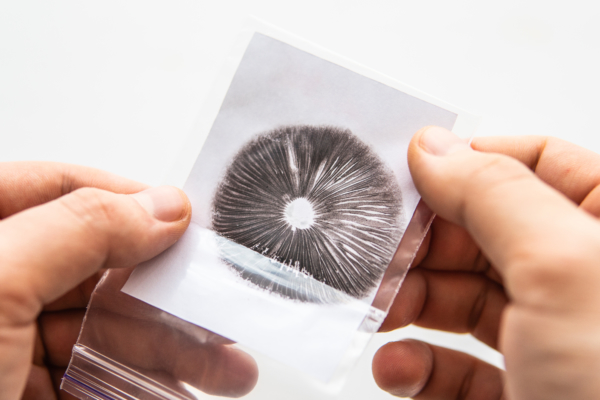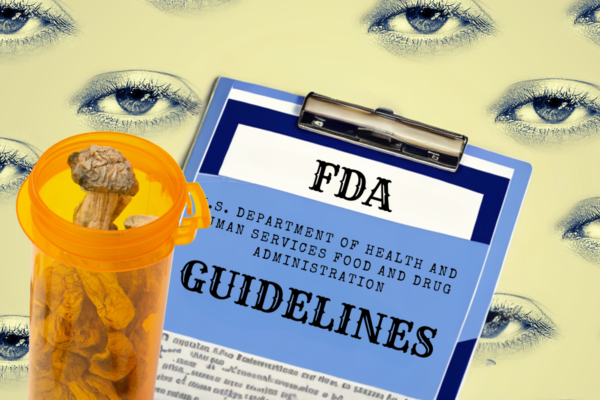
Are magic mushrooms legal in Canada? This is a question that many people curious about psychedelic exploration are asking as the use of psilocybin-containing fungi becomes more mainstream among those looking to find an alternative option to treat debilitating mental health illnesses. When it comes to medicinal and recreational drug use, Canada is often seen as a progressive hotbed of marijuana legalization. But while cannabis has become increasingly commonplace across North America, psychedelic mushrooms remain largely in legal limbo. As it turns out, there’s more complexity in this situation than you might think! Let’s unpack the details step by step.
What are magic mushrooms?
Psilocybin mushrooms are a type of fungi containing the psychedelically active compound, psilocybin. These “magic mushrooms” or “shrooms”, found in 180 different species, have been used for centuries by cultures from Mesoamerica to induce powerful hallucinatory and spiritual experiences. Psilocybin works in conjunction with its derivative, psilocin; together they create profound differences in consciousness capable of altering perception and emotions drastically.
Psilocybin mushrooms are not only one of the most popular and widely used psychedelics in America, Europe, but also beyond just a drug or sacrament. In fact, psilocybin has been found to be incredibly beneficial as therapeutic aid for cluster headaches, OCDs (Obsessive-Compulsive Disorders), depression, post traumatic stress disorder and addiction – with recent studies further validating these effects.
Is psilocybin legal in Canada?
No, magic mushrooms are illegal in Canada. Psilocybin is strictly prohibited under Schedule III of the Controlled Drugs and Substances Act (CDSA).
Despite the fact that gray market psychedelic dispensaries are proliferating in Canada and psilocybin is openly available for purchase online and in store fronts in some Canadian cities, it remains a criminal offense to consume or possess this substance under federal law.
Nevertheless, there are specific exemptions to this rule. This includes any approval given through Health Canada’s s. 56 exemption or Special Access Program.
We’ll delve into these exemptions further down.
In 2023, the federal government decriminalized personal possession of specific controlled substances in British Columbia. As of January 2023, adults aged 18 and over will no longer have to fear repercussion for possessing small personal amounts of illegal drugs like heroin, fentanyl/morphine, crack & powder cocaine, methamphetamines, and MDMA (ecstasy). However, this does not change psilocybin’s legal status within the province.
Are psilocybin mushroom spores legal in Canada?
This is a little more complicated. Despite the fact that psilocybin mushroom spores are free from containing any psilocybin, therefore making it legal to possess them in theory, Section 7.1 of the CDSA strictly prohibits owning, making, selling/dealing or transporting any materials that could be used to produce and/or traffic in a regulated drug.

You can lawfully possess or traffic psilocybin mushroom spores without breaking the law under s 4(1) [possession], s 5(1) [trafficking] and/or s 5(2) [possession for purpose of trafficking] of the CDSA. With these mushrooms, you can explore a wide variety of opportunities from creating your own seed bank to testing out exotic recipes in cooking to utilizing them in scientific experiments and much more.
However, if a person ever intends to cultivate psilocybin mushrooms, then their possession of the spores is an offense against Section 7.1 of the CDSA and could result in up to a decade-long jail sentence.
For safety and legal reasons, if someone wants to hold or work with psilocybin mushroom spores they should get a s.56 exemption as well as the applicable licenses (dealer’s license or producer’s license) for dealing with those spores. Neglecting this precaution could result in criminal charges under the CDSA and potentially imprisonment.
How do I get legal access to psilocybin in Canada?
Recent medical research indicates that psilocybin, when used in the right circumstances, may help to address mental health issues such as addiction, anxiety, PTSD and obsessive compulsive disorder.
In 2020, Health Canada authorized certain individuals with s. 56 exemptions of the Controlled Drugs and Substances Act to lawfully access psilocybin for therapeutic purposes – a milestone accomplishment since its criminalization back in 1970s.
In January 2022, Health Canada implemented sweeping modifications to the Special Access Program (SAP), opening up access for medical professionals to request psilocybin for those with serious or life-threatening conditions when other treatments fail or are not available in the nation.
In December, Quebec became the first province to cover costs associated with psilocybin-assisted psychotherapy. Two doctors were able to lawfully bill their province for psilocybin-assisted psychotherapy treatment through Health Canada.
Last summer, TheraPsil, a non-profit that advocates for legal psychedelic therapy, worked on a landmark lawsuit against the Government of Canada and the Minister of Health. The case in question centered around patients and their right to access psilocybin and receive its therapeutic benefits.
As psilocybin and psilocin are Schedule III substances that Canadians may only access through certain legal loopholes, TheraPsil’s lawsuit argues that these existing pathways are insufficient and do not adequately serve the needs of patients who need therapeutic access to psilocybin therapy. TheraPsil has taken legal action against the government countless times, and in each instance they’ve achieved victory for their clients prior to any trial proceedings.
After March 17, 2023, eligible individuals who suffer from a mental illness will have access to MAID, Canada’s revised medical assistance in dying, providing that all requirements are met and the proper precautions are taken by their practitioners.
How Does the Special Access Program (SAP) Work?
Canada’s Special Access Program (SAP) grants physicians the opportunity to request access to psychedelic treatments, such as psilocybin, MDMA, DMT and LSD that have yet to receive official approval for sale in Canada.
Each request is carefully considered, as approval does not come with a guarantee. When it appears that a patient may benefit from a drug, their healthcare provider must submit an application to Health Canada. If approved, the manufacturer will be allowed to supply the medication directly to their licensed health care professional who can then distribute it accordingly among patients in need.
SAP authorizations are only granted in cases of serious or life-threatening conditions, when all possible conventional treatments have not succeeded. Furthermore, the requested drug must provide substantial proof that it is a safe and effective treatment for the patient’s condition. The availability of this medication within Canada should also be taken into consideration before conducting an assessment.
When it comes to psychedelic drugs such as psilocybin, health care providers can only source them from a licensed dealer under the Controlled Drugs and Substances Act (CDSA). In simpler terms, the SAP doesn’t provide universal access to psychedelics acquired from any seller.
You can submit a request to the SAP
If someone is hoping to begin psychedelic-therapy via SAP, they can ask their doctor or an authorized healthcare expert to make a request on their behalf.
There are however other options.
If you’re looking for extra help, try TheraPsil or Roots to Thrive – two highly reputable non-profit organizations based in Canada. TheraPsil has made it possible to access psilocybin-assisted therapy legally and easily, while Roots to Thrive offers psychedelic-assisted therapies with the help of a team of healthcare professionals.
Another way to submit a request is to get in touch with Field Trip Health, a public psychedelic-assisted therapy company focusing on ketamine treatments located in Toronto. Canadians can apply for assistance with depression, anxiety, post-traumatic stress disorder and CNS disorders by sending an email to SAP@fieldtriphealth.com
How Does the Special Access Program (SAP) Work?
In a nutshell, s.56 of the CDSA explains the potential legal exemptions for controlled substances. Health Canada states that an exemption will allow researchers (doctors, veterinarians and other analysts) to acquire, own and utilize a specific amount of regulated substance for research purposes like scientific use in vitro, providing it to animals or human clinical trials. Separate application forms are mandated depending on if used for science experiments or medical studies.
According to s.56.1, the Minister may permit an exception if deemed necessary for medical or scientific reasons, or in the interest of the public welfare.
Section 56 exempts doctors, therapists, and those with life-threatening afflictions from the rules that limit access to psilocybin, MDMA, and other psychedelics for therapeutic purposes. Additionally, it permits researchers to explore these compounds’ effects – just as was done by the trailblazing psychedelic scientists in the 1940’s through 1970’s.
If a private company seeks to gain approval of s. 56 exemption to conduct activities involving controlled psychedelic substances in Canada, it may prove useful for them to partner with an established Canadian university.
Canadian universities have a special standing when it comes to working with controlled substances, and they don’t need an exemption from the government. All that is required is approval from the dean of their institution plus consent from Health Canada.





